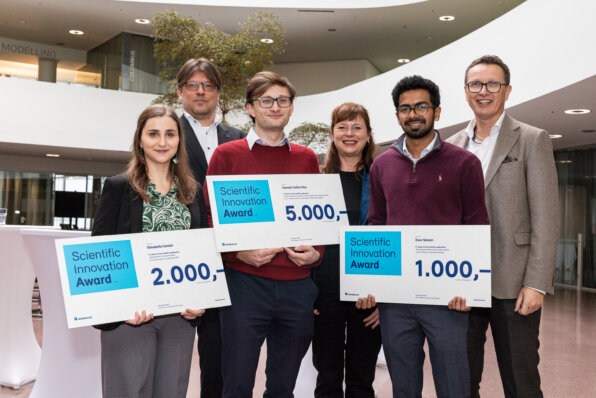Our View on Microplastics
Microplastics are a significant environmental problem, harming our marine environment and posing a risk to human health. Once in the environment, they are difficult to remove and can take hundreds of years to break down. Preventing microplastics entering the environment is therefore a key issue for us.

The Sources of Microplastics
There are two types of microplastics – primary and secondary.
Primary microplastics can be intentionally added to products such as toothpaste, exfoliating creams or industrial cleaning products, used to shot-blast ship hulls, or the result of wear and tear on items containing plastics, such as tyres, roads and synthetic fibres.
Primary microplastics can also be unintentionally released into the environment. This happens when industrial plastic resins and powders are accidentally spilled during production, transport, sea shipment, conversion or recycling.
Secondary microplastics result from larger pieces of plastic (for example, plastic packaging) leaking into the ocean. Over time, sunlight and wind cause these objects to break down into microplastics. Secondary microplastics can be found in table salt, bottled drinking water and other substances.
The Regulatory Response
The European Chemicals Agency (ECHA) was asked by the European Commission to prepare a restriction on intentionally added microplastics in both consumer and professional products. This restriction was adopted by the Commission in September 2023 and the first measures like a ban on loose glitter and microbeads started to apply right after that date. A sales ban on products like complex cosmetics will apply after 4-12 years to enable the need for reformulation and the availability of suitable alternatives.
In October 2023 , the European Commission proposed a Regulation on preventing pellet losses to reduce microplastic pollution. This Pellet Loss Regulation has the goal to ensure that all operators handling pellets in the EU take the necessary precautionary measures. The proposal includes best handling practices for operators, mandatory certification and self-declarations and a harmonized methodology to estimate losses.
Our View
Microplastics Have No Place in Our Environment, Waters or Food
Increasing volumes of micro-plastics are ending up in the environment due to the worldwide increase in plastic production and use. Once they are in the environment, removing micro-plastics is practically impossible. Only proper recovery and recycling of plastics at the end of their lifetime can effectively prevent the spread of micro-plastics.
The potential for microplastics to harm marine life and human health is a major concern. Swallowing plastics and micro-plastics can block sea animals’ digestive tracts, leading to starvation.
We Need a Better Scientific Understanding of Microplastics and Their Impact
There are major gaps in our knowledge about the impact of microplastics, including their source, their pathway into the environment, where they end up, how long they last and the related risks.
The potential effect of microplastics on human beings is still a matter of scientific debate and much more sound scientific research is needed. We therefore welcome the World Health Organisation’s ongoing work to scientifically review the potential risks of microplastics. We are also engaged in Plastics Europe, which has launched a multimillion-euro, five-year (2022-2026) scientific research project called Brigid in 2022. This project aims to assess the potential risks to human health from microplastic exposure through ingestion.
We Are Committed to Zero Pellet Loss from Our Operations and Our Supply Chain
We are fully committed to ensuring that no plastic pellets escape from our operations or supply chain, and we invest substantially in the best-available technology to prevent pellet spills.
Operation Clean Sweep (OCS) is an international program to help prevent resin loss from getting into the marine environment. We were one of the first signatories of Plastics Europe’s OCS pledge and we have also signed the Austrian Chamber of Commerce’s Zero Pellet Loss pledge initiative. Together with Total, we pioneered and developed the world’s first OCS audit scheme and have run audits in all our production locations, resulting in clear actions and targets. Notably, two of our key sites in Belgium, Kallo and Antwerp, have recently achieved the OCS-certification, affirming our dedication to zero pellet loss.
Our other actions include ongoing analysis, awareness campaigns and training with our employees and contractors, to reinforce our work practices and behaviors. We are putting in place effective pellet retention measures, such as sieves and pellet separators, as well as skimmer ponds and filtration units, based on the best available technology. In addition, we continuously invest in research and development and in our processes and separation technology for both pellets and powder, and work with government bodies and universities to increase our knowledge and further improve our separation systems.
We also engage with the value chain, including customers, distributors, external warehouses and logistic providers, and will begin to engage with compounders and silo and container cleaners. We welcome the Regulation on preventing pellet losses to reduce microplastic pollution which establishes mandatory OCS-like standards for all companies in the EU.


